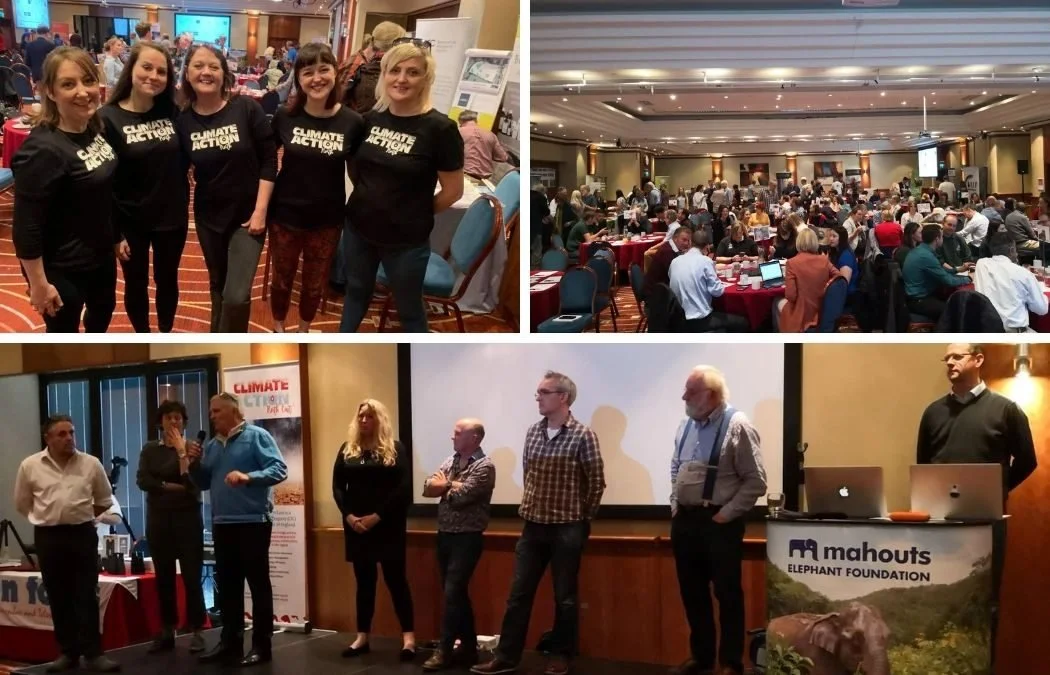Rewilding is going from strength to strength
The Climate Action North Rewilding Conference to mark this year’s World Environment Day is hailed a roaring success.
The sold-out event attracted over 140 attendees to hear our panel of experts share their experiences of rewilding and climate change, two subjects that are inseparably linked.
This is the fourth rewilding event held by Climate Action North within one year and is a cornerstone of combating climate change or climate breakdown.
Over the last few months, rewilding has caught the imagination of professionals and the public alike and we’re delighted to be championing this movement here in our region.
With huge thanks to our inspiring and interesting speakers, here is a brief rundown of the day itself.
Mike Pratt, Chief Executive of Northumberland Wildlife Trust, chaired the day, and highlighted the incredible recent shift in public attitudes to rewilding and climate change.
Alastair Driver, Director of Rewilding Britain, stated that traditional conservation practices on their own are not enough to achieve significant wildlife recovery in Britain. More is needed and that “more” is rewilding. Alastair’s aim is to mainstream rewilding as a key mechanism for delivering natural climate solutions and improving biodiversity.
Isabella Tree’s personal experience of rewilding the Knepp Estate in Sussex was both heartening and inspiring. Isabella and her husband Charlie Burrell decided to rewild the estate almost 20 years ago when they realised the farm was failing. The estate is now a thriving landscape for wildlife and a profitable business. It’s a fantastic example of how rewilding can place ecology and economy on an equal footing.
David Hetherington, ecologist and author, having outlined how trees are a powerful weapon in the fight against climate change, introduced us to the exciting and ongoing Treewilding of the Cairngorms National Park. He went on to explain how the reintroduction of the Eurasian lynx in Scotland, although socio-politically complex, could play a key role in helping keep both woodland deer numbers and their browsing of trees under control. Widespread misunderstanding of lynx behaviour was contributing to a polarised national discussion about reintroduction in the UK, but he felt there is much we can learn from elsewhere in Europe where people and lynx coexist.
James Fearnley introduced the BeeArc Apiceutical Research Centre where they examine the medicinal and natural benefits of propolis and honey.
Chris Stokes, glacier specialist and researcher from Durham University, explained that the climate change we’re witnessing now is far outside what we’ve observed in the recent past and explained how glaciers and ice sheets are shrinking and causing sea level rise. Despite these dramatic changes, however, Chris is hopeful that action will be taken.
Sacha Dench, also known as the Human Swan, recounted her paramotor flight from Siberia to the UK with migrating Bewick’s swans. Sacha highlighted the decreasing number of swans and how she engaged with communities along her journey to understand the risks these birds face. And we’re awed that Sacha cycled to the conference all the way from Devon over the course of six days to minimise her carbon footprint.
And Doug Allan, Blue Planet Cameraman and Award-Winning Photographer, shared his personal experiences of his time in the Arctic and how he balances climate reality with climate optimism. His wise parting words were: “All you need is less. The time for change is now and an easy way to start is to consume less.”
The work doesn’t stop here.
There is no defined end point for rewilding; the aim is to support nature-driven processes, which in turn will bring about a healthier and wilder nature. This will take time and space and every step moving up this scale is progress.
We can give it a helping hand by creating the right conditions. Our Pollinator Parks Project is a superb example of small-scale, or ‘pop-up’ rewilding that is cost-effective and makes a huge difference in practically supporting and caring for our wildlife, while repairing the broken ecosystems.
Get in touch with us for more details on rewilding in the North of England and how to get involved.
The time for talking is over, today we need to act.

